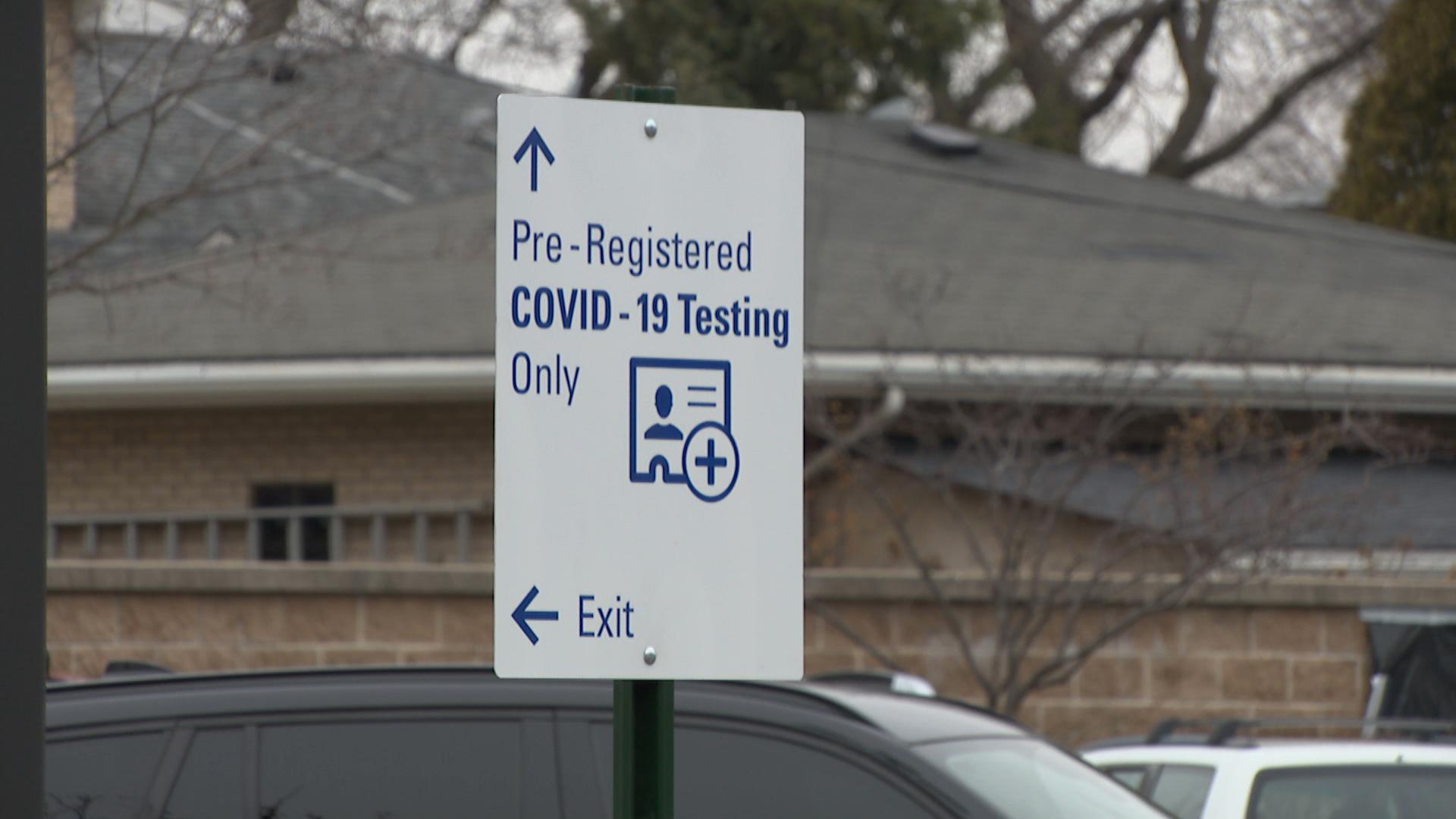 (WTTW News)
(WTTW News)
Because the novel coronavirus is primarily an upper respiratory disease, inserting a thin swab deep into the nasal cavity has become the primary method for testing.
But the virus can also be detected in saliva, and early research by University of Chicago scientists has found digital saliva-based tests to be just as accurate.
“The saliva test was on par with a nasal swab, and that’s pretty encouraging,” said Evgeny Izumchenko, UChicago assistant professor of medicine in the section of hematology and oncology. “The beauty of (a saliva-based test) is that it’s less invasive, and you could allow people to collect their own samples. Everyone knows how to spit.”
Scientists believe saliva tests could eliminate inconclusive tests results for patients who test negative for the virus but still show symptoms. That’s because the saliva test uses a system called droplet-digital PCR that measures how much of the virus is in a sample, whereas swab tests use a technique called qPCR that only detects whether the virus is present.
“(Saliva tests) could provide clinicians with a quantitative measure of how much virus is present, beyond a simple yes or no,” said Nishant Agrawal, a UChicago surgeon-scientist and investigator on the study, in a statement. Agrawal has been working on digital PCR and saliva for over a decade.
Researchers also believe saliva tests could more accurately identify cases in which symptoms are not present. “It’s possible that people who have the virus but don’t show symptoms have a smaller amount of virus that wouldn’t show up on (traditional) tests,” said Jeremy Segal, an associate professor and pathologist at UChicago, in a statement. “If they’re still able to spread the virus, being able to detect those people would be very important.”
Saliva tests could also potentially be used to ensure COVID-19 patients don’t have trace amounts of the virus before they are discharged from the hospital, according to Izumchenko.
As coronavirus cases surged in Chicago in late March and early April, researchers set up a booth at UChicago Medicine’s curbside COVID-19 testing site and asked people once were tested by health care workers if they’d be willing to participate in the study by spitting in a tube and submitting to another nasal swab.
Researchers used droplet-digital PCR tests on both the nasal swab and saliva samples in Savas Tay’s lab at the Pritzker School of Molecular Engineering and compared them with results from the hospital’s sample that used qPCR test.
The study is ongoing, but so far the saliva test samples collected have matched up exactly with the hospital’s results.
While the results are promising, the droplet-digital PCR test is not yet fully automated and scientists have to carry out the steps by hand.
“It’s a work in progress,” said Izumchenko. “While we can use the technique to answer some challenging questions, widespread use of this technique is not quite there yet for population-based screening.”
Contact Kristen Thometz: @kristenthometz | (773) 509-5452 | [email protected]








